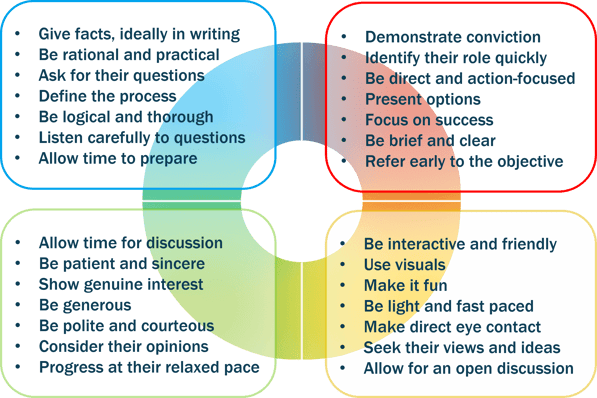May 30, 2022
2 min reading time
What are you like to talk to? A guide to meaningful conversations.
What are you like to talk to?
Read moreOctober 1, 2024
1 min reading time
Discover with us the six essential reasons why feedback training is vital to grow a healthy team and organisational culture to that encourages high performance. In this short overview gain valuable insights into building a healthy feedback culture within your team or organization.
We are particularly focussing on building a healthy culture of feedback within teams and organisations as opposed to customer or client feedback processes.
We all know that feedback is essential for growth, but receiving and giving feedback can be one of the most challenging experiences when part of a team. Training in this area of communications, for everyone at all levels, is also not common in many workplaces. In fact, feedback is often overlooked as one of the key factors holding back a team from high performance.
The Cambridge Dictionary gives a good summary for a business context:
Feedback is information about something such as a new product or someone's work, that provides an idea of whether people like it or whether it is good.
The key here, is that understanding whether their work is well-received and of good quality is crucial for individuals, colleagues, and teams. Failing to receive this feedback can lead to decreased morale and lower performance. Let's unpack this a little more:
When there is a lack of training, feedback may be avoided altogether and a vacuum develops. None at all, or even insufficient feedback, risks communicating to an individual or team that their work, behaviour, or even they themselves, are not liked or good. It is all too easy to fill a vacuum with negative assumptions, leading to disengaged and demotivated teams. A healthy feedback culture leaves no vacuum, and individuals know how to both give and receive meaningful, actionable feedback; they are confident in the feedback mechanisms and see the value in their team performance.
When delivered well, feedback tells your teams and employees whether their performance has hit the mark and how closely. It also builds trust. Feedback is not just top down – it is vital for everyone, at every level of your organisation, to understand how their behaviour is impacting the performance of others. High performing teams and organisations need constructive feedback loops baked into their operating systems.
Reducing feedback to categories of ‘good’ or ‘bad’ is not specific enough to help team members give or receive meaningful and actionable points. High quality ‘good’ feedback can be both positive and negative. Simply stating "you did well" or "that was sub-standard" in a performance review or peer-to-peer review does not provide actionable feedback that guarantees repeated success or avoids poor performance in the future. Instead, effective feedback acknowledges the specific actions taken, explains why they were effective or ineffective, describes their impact, and sets a goal for future improvement.
Having a solid feedback mechanism, like the one described in point 4 above, is just the start, it does not ensure that it is heard by the recipient because we all have different preferences for receiving information. For example, some of us need it written down in a bullet point list of information and others need an informal conversation that addresses how they feel. This is where behavioural psychology offers a powerful tool to help your teams understand each other’s motivations and intentions, so relationships function more smoothly, and goals get achieved faster.
C-me has a helpful diagram that showcases the different communication styles people have, each represented by a preferred colour quadrant. Knowing how team members prefer to receive feedback can help prevent miscommunication and misunderstandings that decrease workplace productivity and negatively impact team dynamics. Understanding each other's communication preferences powerfully impacts how team members work together effectively and achieve their goals.

Learning to receive feedback is just as important as learning to give it. Your goal needs to be training people to grow the skill of receiving it, as well as delivering it, in a competent fashion. In high performing teams with a healthy feedback culture, members can receive it even when it is poorly delivered and off-point.
From our experience, there are some simple solutions based on behavioural preference psychology which have a massive impact in transforming the health of a feedback culture, directly affecting workplace productivity.

A healthy feedback culture relies on all members of your team or organisation understanding the communication styles of one another. As mentioned above, some will prefer considered, written feedback in bullet points before a face-to-face conversation, in order to give them time to think and accurately understand what is being said. Others would prefer an informal conversation about how they experienced the project before any mention of what can be improved, because they place high value on connection through conversation.
There is no ‘right’ way to give feedback, but if a leader or manager imposes their own preferred style upon everyone else, their team performance is likely to suffer as members increasingly feel unheard, misunderstood, or undervalued, which can then affect motivation and performance. The same can happen between team members working on a project, for example, if neither is able to understand and ‘speak’ in the other’s behavioural preferences, or one dominates the other, it can often affect whether the team members feel valued by one-another, and whether they can work effectively together.
We see this situation occur all too regularly and often due to a simple lack of understanding of one-another within the team. C-me specialises in helping teams and whole organisations understand and speak in each other’s ‘language’ so they can be heard and collaborate effectively, to achieve their goals. We use psychometric profiling to gather data and reflect back to you how you, your team, and your entire organisation as a whole prefer to work. This is key information to ensure feedback is personalised and constructive to the needs of the individual. On our C-me platform your teams can view each other’s preferred ways of working and preferences for what to do in a feedback situation, a meeting or project to get the best out of each another.
To find out more have a look at our C-me platform and how we apply behavioural preference psychology to team communication.

If you would like to find out more about how we can help you book a demo with our team or a free trial of our C-me platform.
If you haven't seen it already we have another article on feedback - Building high performing teams: how healthy is your feedback culture? Where we explore the attitudes, values, goals and practices of a healthy feedback culture with some tips and examples to implement if you're looking to build a high performing organisation.
May 30, 2022
2 min reading time
What are you like to talk to?
Read moreJune 16, 2022
2 min reading time
Self-awareness is defined as just that: awareness of self. Anything from what our strengths are, our blind spots, how other people perceive us, how present we are at any given moment... ...
Read moreJune 3, 2024
4 min reading time
With markets expanding and customer expectations constantly evolving, companies face more challenges than ever when it comes to keeping their employees aligned, engaged, and committed to ...
Read more